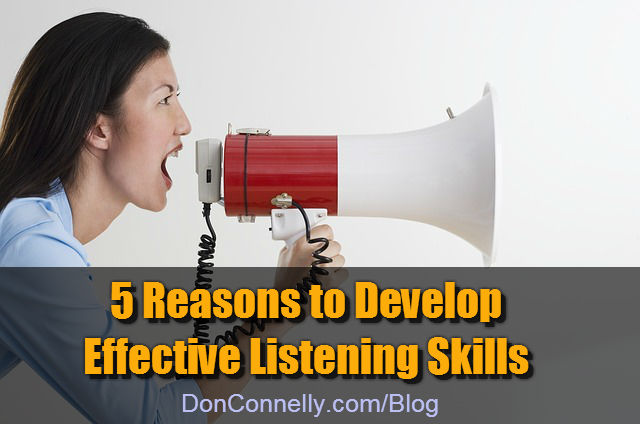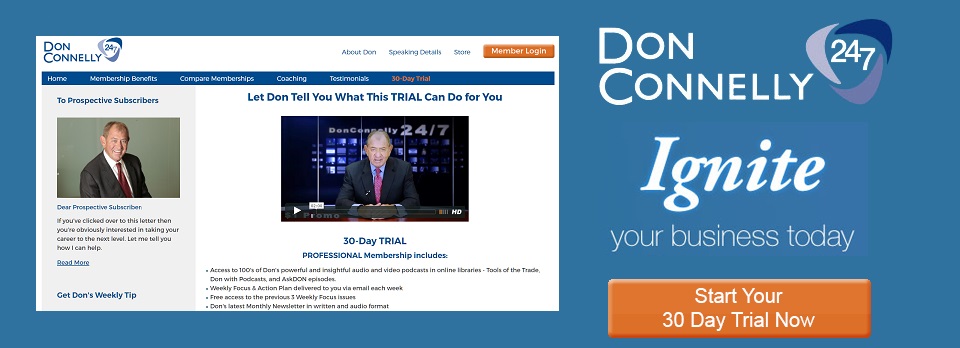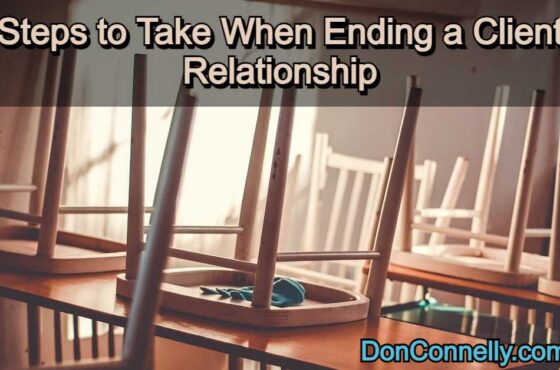5 Reasons to Develop Effective Listening Skills
 The fact is, most of us simply don’t listen enough. That could be because of the increasing number of distractions going on around us, or because we often find it easier to focus on non-verbal clues – such as body language – rather than on what people are actually saying. But if you want to get ahead as a financial advisor you need to develop effective listening skills.
The fact is, most of us simply don’t listen enough. That could be because of the increasing number of distractions going on around us, or because we often find it easier to focus on non-verbal clues – such as body language – rather than on what people are actually saying. But if you want to get ahead as a financial advisor you need to develop effective listening skills.
It’s impossible to learn anything without listening to others. Listening is the only way to get to understand people’s goals, fears and objections. And it’s only by understanding these, that you can get people to invest in you, and stay with you for the long term.
1. Show outstanding customer service by listening
If you are guilty of talking too much (and we all are from time to time) it’s time to redress the balance and learn the art of remaining silent. When you are with a client no one should be more important at that particular moment than them. And here it pays to remember that listening is not a passive activity.
Unless you’re ‘actively’ absorbed by what the other person is saying, you are not actually listening. If you get distracted your clients and prospects will shut down, so show them respect and care by listening to them attentively. Smile and nod, show engagement and you will be trusted and liked.
People only do business with people they like. If you do not pay attention to what your clients and prospects are saying to you then they will dislike you. Simple as that.
Put the focus on your clients – not on yourself, especially when you first meet, and deliver exceptional customer service.
2. Get to know your clients better by listening
Finding out what’s important to your clients is a major way to build a stronger relationship with them. Find out what their goals and motivations are by asking good questions.
Don’t start rattling off information before you understand their financial situation. Don’t opine, don’t ever turn a conversation into a lecture. Ask them about their expectations. Ask them why are they here meeting with you? Is it because they are less than thrilled with their present advisor? What level of risk enables them sleep at night? Then listen to the answers.
3. Listen to learn how to speak the same language as your clients
As a financial advisor it’s somewhat of a given that you understand your financial products, the stock market and so on. However when you speak to a client you need to remember that you’re talking to someone with far less knowledge than you. There’s little point in making sweeping statements or generalizations about financial matters if they’re completely lost in the conversation.
In order to better communicate with your clients you need to talk to them on their own level in language they can understand, otherwise you will not be able to engage with them. Make sure you ‘listen’ to your client to understand how much or how little they know, and tailor your language around this.
4. Listen to good advice
Become a better advisor by paying attention to your mentor. You can avoid the pain of learning first hand by learning from others’ experiences and mistakes. Don’t believe you know more than seasoned professionals, be humble and listen to others’ advice. And don’t hear just what you ‘want’ to hear but really listen in order to understand the implications of what’s been said.
5. Listening will help you network
Listening is an underrated networking skill. When you’re at an event never make it all about you. Always make it about the other person and ask professional questions to show respect and to illustrate that you value the other person’s opinions. By making the other person feel interesting they become more interesting themselves. Make a point of giving more than you receive. But never be insincere since people can spot fake compliments and gestures a mile away.
Anyone can become a good listener
Put your ego to one side and let others do the talking. Try not to cut in with your opinions, no matter how tempting. Give feedback in the form of eye contact to show you’re interested in what’s being said.
Ask questions, empathize and above all else care. If you do you’ll become a great listener. Always remember when you’re with clients it’s ‘their’ meeting, not yours. Take all the information in and digest it. Only then should you consider giving your presentation. Your clients want to be heard, so concentrate, because if you’re not paying attention they will dislike you and they will not do business with you.
Finally, don’t confuse ‘hearing’ with ‘listening’. Hearing is the physical part when your ears pick up sound waves. Listening is making sense of them.




